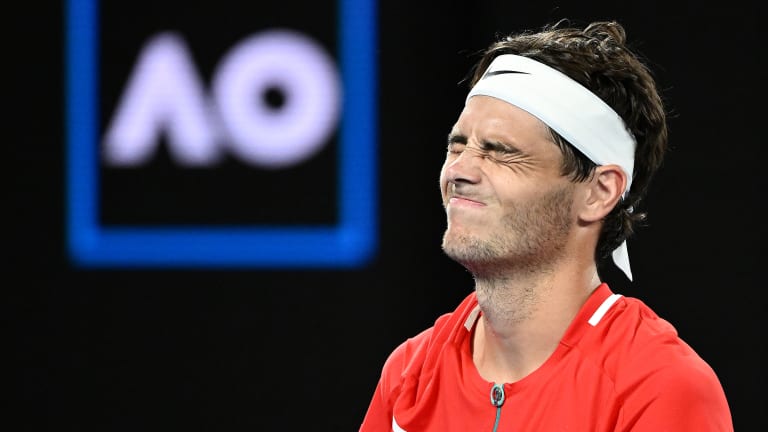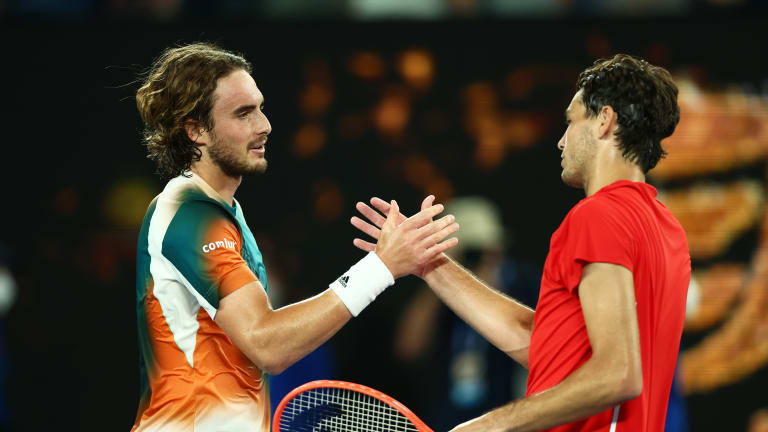Australian Open
Stefanos Tsitsipas and Taylor Fritz traded haymakers for five sets. The Greek made the pass he needed, while the American came up a volley short
By Jan 24, 2022Australian Open
Roger Federer to headline “Battle of the World No.1s” at Australian Open’s inaugural Opening Ceremony
By Dec 11, 2025Australian Open
Australia at Last: Reflections on a first trip to the AO
By Jan 29, 2025Australian Open
Alexander Zverev must elevate his game when it most counts—and keep it there
By Jan 27, 2025Australian Open
Jannik Sinner draws Novak Djokovic comparisons from Alexander Zverev after Australian Open final
By Jan 26, 2025Australian Open
Alexander Zverev left to say "I'm just not good enough" as Jannik Sinner retains Australian Open title
By Jan 26, 2025Australian Open
Jannik Sinner is now 3-0 in Grand Slam finals after winning second Australian Open title
By Jan 26, 2025Australian Open
Taylor Townsend and Katerina Siniakova win second women's doubles major together at the Australian Open
By Jan 26, 2025Australian Open
Madison Keys wins her first Grand Slam title at Australian Open by caring a little bit less
By Jan 25, 2025Australian Open
Henry Patten, Harri Heliovaara shrug off contentious first set to win Australian Open doubles title
By Jan 25, 2025Stefanos Tsitsipas and Taylor Fritz traded haymakers for five sets. The Greek made the pass he needed, while the American came up a volley short
“It was a match with a lot of emotions,” Tsitsipas said. “The stadium was on fire.”
Published Jan 24, 2022
Advertising
Advertising

With Fritz’s defeat, the U.S. lost its last player in the men’s draw. But the Californian did make a breakthrough by reaching the round of 16 at a major for the first time.
© Getty Images
Advertising

Fritz topped Alexander Zverev and Matteo Berrettini late last year, but couldn't quite overcome Tsitsipas in Melbourne.
© Getty Images